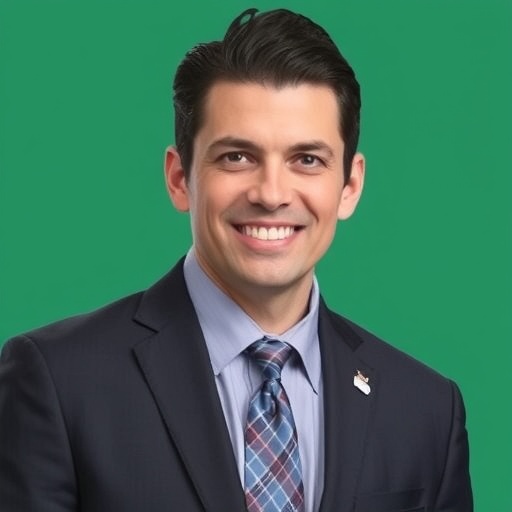Federal Shutdown Puts SNAP Benefits for Millions in Peril: Rep. Brendan Boyle Warns of Imminent Food Assistance Crisis
In a stark warning that has reverberated through the halls of Congress and beyond, Rep. Brendan Boyle, a prominent voice for working families, declared that the protracted federal shutdown combined with sweeping domestic policy cuts could soon strip SNAP benefits from nearly 2 million Pennsylvanians alone, leaving millions more across the nation teetering on the edge of hunger. As the impasse drags into its third week, the Supplemental Nutrition Assistance Program (SNAP)—the lifeline of food assistance for low-income households—faces unprecedented threats, with ripple effects extending to critical healthcare access for the most vulnerable.
- Boyle’s Fiery Critique of Shutdown Policies Endangering SNAP Funding
- Pennsylvania Families Brace for SNAP Disruptions in Shutdown Fallout
- Nationwide SNAP Crisis Looms as Shutdown Strains Food Assistance Networks
- Healthcare Vulnerabilities Exposed: Shutdown’s Dual Threat to SNAP and Medical Access
- Pathways Forward: Bipartisan Efforts and Urgency for Shutdown Resolution
Boyle, a Democrat representing Pennsylvania’s 2nd Congressional District, issued this alert during a press conference on Capitol Hill, emphasizing the human cost of political gridlock. “This isn’t just about numbers on a ledger; it’s about families skipping meals, children going to bed hungry, and communities unraveling at the seams,” Boyle stated, his voice laced with urgency. “The shutdown is not a mere inconvenience—it’s a catastrophe in the making for those who rely on SNAP to survive.”
The federal shutdown, triggered by partisan disagreements over border security funding, has already furloughed hundreds of thousands of government workers and halted non-essential services. But its impact on social safety nets like SNAP, which serves over 41 million Americans monthly, is particularly alarming. Administered by the U.S. Department of Agriculture (USDA), SNAP provides electronic benefits transfer cards loaded with funds for groceries, helping to combat food insecurity in a country where one in eight households struggles to put food on the table.
According to USDA data, Pennsylvania ranks among the top states for SNAP enrollment, with approximately 1.9 million residents—about 15% of the state’s population—depending on the program. Nationwide, the stakes are even higher: SNAP’s annual budget exceeds $70 billion, supporting an average benefit of $125 per person per month. Any disruption could exacerbate the 13.5% national food insecurity rate reported by the USDA in 2022, pushing more families into poverty’s grip.
Boyle’s Fiery Critique of Shutdown Policies Endangering SNAP Funding
Rep. Brendan Boyle has long been a fierce advocate for social welfare programs, drawing from his roots in Northeast Philadelphia where he witnessed firsthand the struggles of blue-collar families. Elected to Congress in 2014, Boyle serves on the House Budget Committee, giving him a front-row seat to the fiscal battles that now imperil SNAP. In his recent statements, he lambasted the shutdown as a “self-inflicted wound” that disproportionately harms the poor while the wealthy remain insulated.
“Congress has a moral obligation to fund these essential programs,” Boyle asserted in an interview with reporters. “The proposed cuts in the latest budget reconciliation package would slash SNAP by up to 20%, affecting eligibility for working parents, seniors, and disabled individuals. This isn’t fiscal responsibility; it’s fiscal cruelty.” Boyle pointed to specific provisions in the stalled funding bill that tie SNAP allocations to broader austerity measures, including reductions in Medicaid expansion—a key pillar of healthcare for low-income Americans.
Experts echo Boyle’s concerns. Mark Winne, a veteran food policy analyst and author of “Food Rebels, Gourmet Slaves,” described the situation as a “ticking time bomb.” “SNAP isn’t just food assistance; it’s an economic stabilizer that injects billions into local grocery stores and farms,” Winne said. “A prolonged shutdown could delay benefit issuances, leading to immediate spikes in emergency food bank demands and long-term health issues like malnutrition-related diseases.”
Historical precedents underscore the peril. During the 2013 shutdown, SNAP payments were nearly delayed, forcing states to dip into reserves and causing widespread anxiety. This time, with inflation driving up grocery prices by 11% year-over-year according to the Bureau of Labor Statistics, the buffer is thinner. Boyle has introduced legislation, the “Hunger-Free Communities Act,” to safeguard SNAP during crises, but it stalls amid the broader deadlock.
Pennsylvania Families Brace for SNAP Disruptions in Shutdown Fallout
In the Keystone State, the threat to SNAP hits close to home, particularly in urban centers like Philadelphia and Pittsburgh, where poverty rates hover above 20%. Nearly 2 million Pennsylvanians, including 1 million children, rely on SNAP to bridge the gap between meager wages and rising living costs. Boyle highlighted stories from his district: single mothers juggling multiple jobs, elderly veterans on fixed incomes, and immigrant families navigating eligibility hurdles.
Take Maria Gonzalez, a Philadelphia resident and Boyle constituent, whose voice Boyle amplified in his press remarks. “SNAP is the difference between eating three meals a day and rationing rice for a week,” Gonzalez shared via a recorded testimonial. “With the shutdown, I’m terrified my card won’t reload. My kids deserve better than this uncertainty.” Her story is emblematic of the 40% of SNAP households that include children, per Feeding America statistics, where even brief interruptions can lead to school absences and developmental setbacks.
The Pennsylvania Department of Human Services reports that SNAP enrollment surged 15% during the COVID-19 pandemic, a trend that persists amid economic recovery challenges. Rural areas, often overlooked, face unique risks: in counties like Luzerne, where manufacturing jobs have vanished, SNAP usage tops 25% of the population. A shutdown-induced delay could overwhelm food pantries, which already distributed 200 million pounds of food last year through networks like the Central Pennsylvania Food Bank.
Boyle’s office has mobilized constituent services to guide families on backup options, such as state-funded emergency aid. However, he warned that without federal intervention, these stopgaps will crumble. “Pennsylvania’s most vulnerable—our seniors, our disabled, our working poor—cannot afford to be pawns in this political game,” Boyle urged, calling for bipartisan negotiations to restore funding.
Nationwide SNAP Crisis Looms as Shutdown Strains Food Assistance Networks
Beyond Pennsylvania, the shutdown‘s shadow falls over the entire country, where SNAP sustains 12% of the population. States like California (4.5 million recipients) and Texas (3.5 million) stand to lose the most, with urban food deserts amplifying the crisis. The Center on Budget and Policy Priorities estimates that a one-month SNAP delay could result in $5 billion in lost economic activity, as benefits circulate through retail sectors.
Food assistance programs are intricately linked to broader welfare systems. In Florida, where hurricanes have already strained resources, officials warn of doubled demand at soup kitchens. Boyle referenced a coalition letter from 150 lawmakers, including himself, pressing Speaker of the House Kevin McCarthy to prioritize SNAP in any resolution. “This shutdown is testing our national character,” Boyle said. “We must act before hunger becomes the headline.”
Nonprofits are gearing up for the worst. The National WIC Association, which overlaps with SNAP for maternal and child nutrition, anticipates a 30% uptick in calls to helplines. Data from the 2018-2019 shutdown showed a 25% increase in child welfare interventions due to food shortages, a pattern experts fear repeating. Boyle advocated for emergency waivers allowing states to issue partial benefits, but bureaucratic snarls from the furloughed USDA hinder progress.
Economists like those at the Brookings Institution project that prolonged disruptions could add 500,000 people to food-insecure rolls, worsening inequality in a post-pandemic economy. Boyle’s push includes virtual town halls to amplify voices from affected districts, fostering a groundswell for reform.
Healthcare Vulnerabilities Exposed: Shutdown’s Dual Threat to SNAP and Medical Access
The shutdown‘s assault on SNAP extends to healthcare, as nutrition and medical care are inextricably linked. Malnutrition from lost benefits can trigger conditions like diabetes and hypertension, straining Medicaid—the joint federal-state program covering 80 million low-income Americans. Boyle spotlighted how SNAP cuts would disproportionately impact Medicaid enrollees, 60% of whom are children or disabled.
In Pennsylvania, where Medicaid serves 3.5 million, hospitals like Temple University Health System report rising emergency visits for diet-related illnesses. Dr. Elena Ramirez, a pediatrician in Boyle’s district, noted, “Kids without proper nutrition show up sicker and stay longer. SNAP isn’t charity; it’s preventive healthcare.” National figures from the Kaiser Family Foundation indicate that SNAP participation reduces healthcare costs by $1,400 per person annually by averting diet-related diseases.
The shutdown has frozen Centers for Medicare & Medicaid Services operations, delaying approvals for dual-eligible individuals who depend on both SNAP and Medicare. Boyle criticized proposals to block-grant Medicaid, arguing they would erode protections amid rising premiums. “We’re talking about lives here,” he emphasized. “Food insecurity leads to untreated illnesses, which burdens our entire system.”
Advocacy groups like the Food Research & Action Center are suing to compel benefit continuity, citing constitutional rights to due process. Boyle supports these efforts, vowing to filibuster any bill slashing food assistance without offsets. Stories from veterans, like Army retiree Tom Reilly from Bucks County, underscore the stakes: “SNAP keeps me out of the ER; without it, I’m lost.”
Pathways Forward: Bipartisan Efforts and Urgency for Shutdown Resolution
As the shutdown persists, glimmers of hope emerge through cross-aisle dialogues. Boyle, collaborating with moderate Republicans like Rep. Brian Fitzpatrick of Pennsylvania, is drafting a compromise bill to ring-fence SNAP and healthcare funding. “We need to rise above partisanship,” Boyle implored. “A clean continuing resolution with protections for vulnerable programs is within reach.”
Looking ahead, the White House has signaled willingness for talks if border concessions are addressed, but Boyle insists social programs cannot be bargaining chips. Public pressure mounts: petitions from organizations like AARP have garnered 500,000 signatures demanding SNAP safeguards. States are exploring innovations, such as Pennsylvania’s pilot for online SNAP purchases to ease access during disruptions.
The implications are profound. If resolved swiftly, the crisis averts; if not, experts predict a 20% rise in homelessness and mental health cases tied to food scarcity. Boyle’s vision includes long-term reforms, like indexing SNAP to inflation and expanding eligibility. “This moment tests our resolve,” he concluded. “Let’s ensure no American goes hungry because of Washington dysfunction.” As negotiations intensify, millions watch, hoping for action before benefits vanish.








